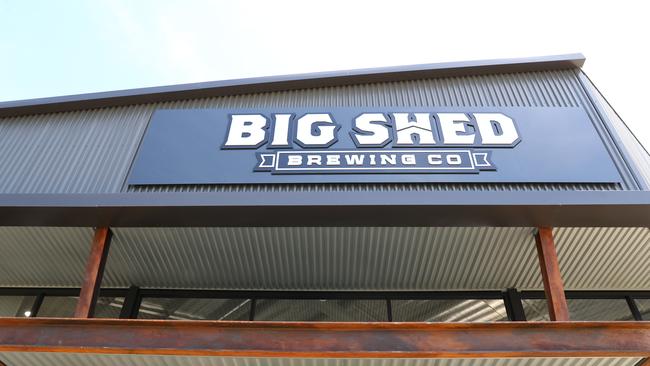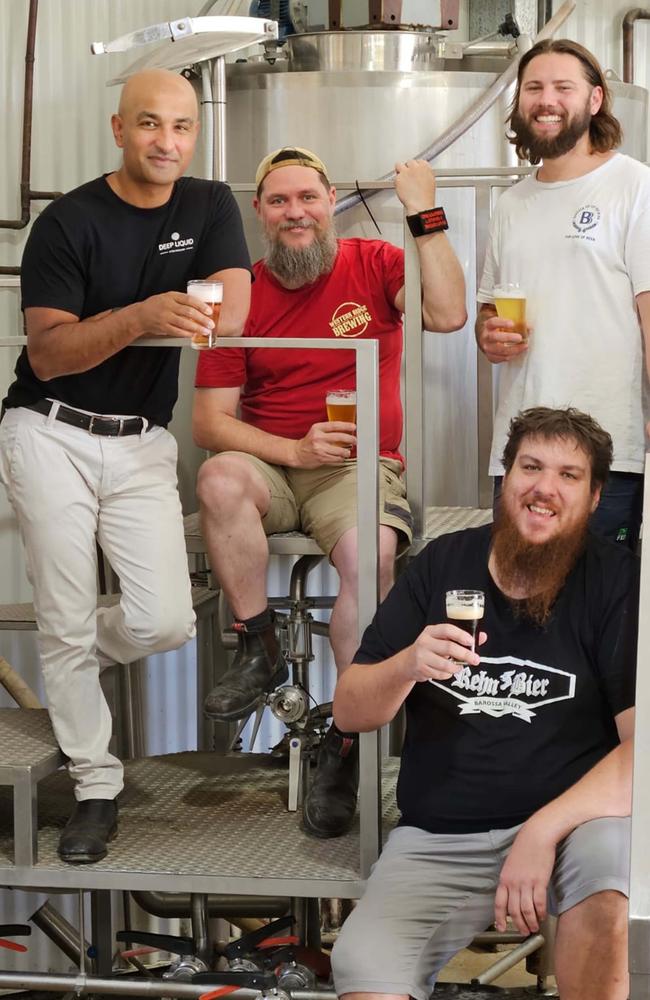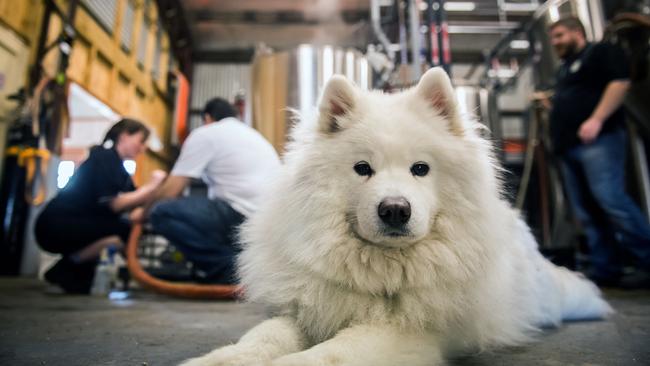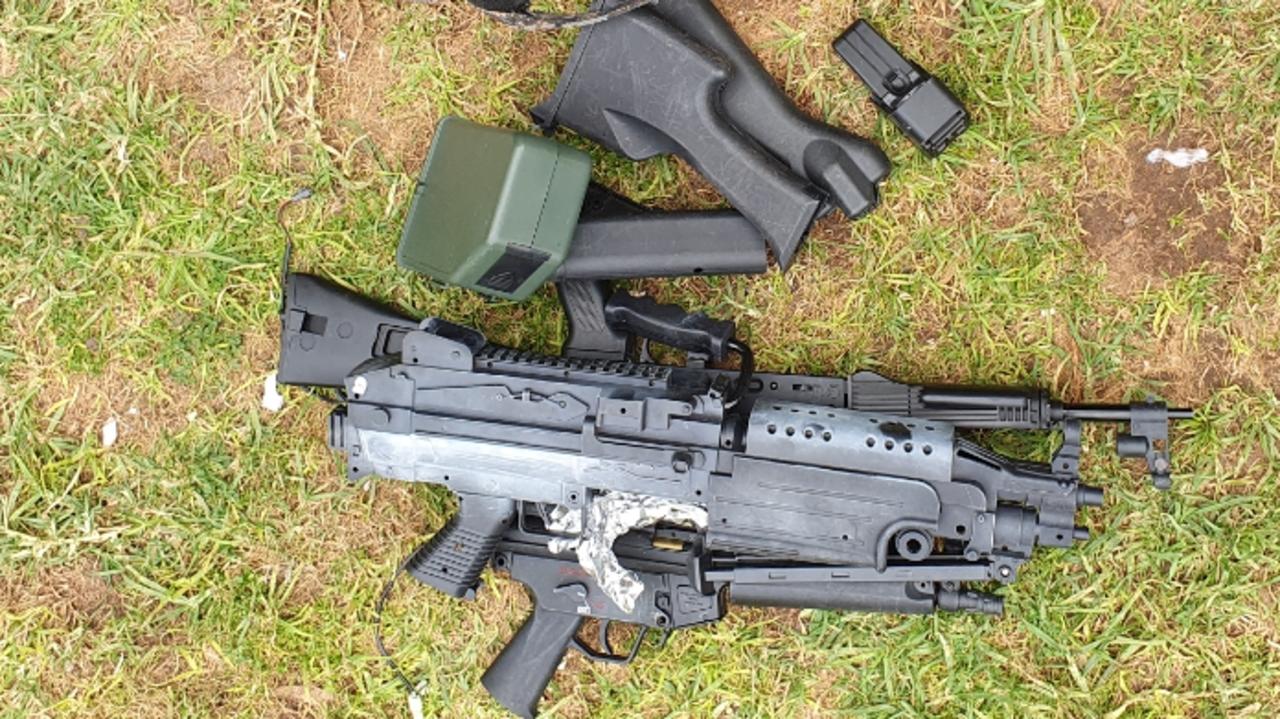Innovative approach saves SA craft brewers amid industry struggles
A South Australian brewery has pulled itself from the brink of closure thanks to a new partnership that gives independent brewers a competitive edge over the big guys.
SA News
Don't miss out on the headlines from SA News. Followed categories will be added to My News.
A South Australian craft brewery has pulled itself from the brink of closure through an innovative approach drawing on the industry’s unique community.
Western Ridge Brewery, which closed in mid-2023 and was listed for sale, has got a new wind after partnering with three other South Australian breweries to compete against the major multinational companies such as Lion Nathan and CUB.
Rising costs and higher interest rates, lower discretionary spending and declining sales impact independent breweries more than the larger multinational companies where scale and production allows them to produce larger volumes for less, and dominate the market.
The storm of influences has led to several nationally recognised breweries such as Big Shed Brewing in South Australia, and Ballistic in Queensland, entering voluntary administration in the past 12 months.

But Western Ridge, in joining with Barossa Valley Brewing, Rehn Bier and Kangaroo Island, can now combat rising costs while each brewer maintains its distinct and unique product.
The quartet will work together to reduce costs through bulk ordering, shared warehousing and delivery costs, while maintaining each unique brew style and flavour.
They have also engaged AI start-up Deep Liquid to develop a new plan and way forward.
Western Ridge Brewery co-founder David Henderson said craft breweries had “flourished” because they “dared to do what multinationals couldn’t”.
“Our instinct as independent brewers is to collaborate and build community,” he said.
“In today’s market, we need to harness this spirit to use technology to disrupt the scale advantage of multinationals.”
The four breweries will recruit a sales manager to oversee and manage the portfolio of beers but will maintain independence while sharing in the benefits of scale.
Deep Liquid is a review platform that uses artificial intelligence to create personalised beverages on demand, and helps brewers understand customer preferences and streamline production processes.

“AI provides a direct line of communication between the brewer and the consumer on a level that has not been previously possible,” co-founder Anton van den Hengel said.
“The strategic use of AI allows for more sophisticated and detailed information and takes the guesswork out of the process.”
The independent brewing industry is known for its innovation and willingness to trial new methods to secure a foothold in the competitive market.
Deep Liquid is the brainchild of Barossa Valley Brewing’s Denham D’Silva whose brewery, which opened in 2005, is the only one in the world with a “neural network”.
“What that means is all our customers can review our beers,” he said.
“Our beer reviews feed the network and it informs the brewers on how to make the best decisions to make the best products.”
Mr D’Silva said he wanted to expand the use of AI in craft brewing to give operators a unique – and current – insight into consumer trends.
Conceding there were “bleak times” across the industry, Mr D’Silva believes AI could provide the innovative path forward.
“Because it is such a bleak time, (brewers) are just cutting and falling back on what they were always doing,” he said.
“They’re going back to pale ales or lagers because that is what everyone is drinking, but that’s not what made us successful.
“We should be innovating our way out of this.”
But consumers need to be more discerning about the craft brews they buy at bottle shops, and who owns them.

Smiling Samoyed pack leader and owner Kate Henning said she believed people wanted to support the independents.
“There are a lot out there that look ‘crafty’ but are actually brands produced by multinationals or home brands of larger chain stores,” she said.
She said the Ask for Indie website tracked breweries and taproom.
“I think people want to support locally owned brands (whether beer or other products) but when the costs of buying local are higher than imported products and the cost of living is rising it is necessary for people to make adjustments to their budgets,” she said.
“The best way to support local breweries is to come and visit our tap rooms directly.
“Essentially though, if you want to see your local brewery make it through this then you need to be out supporting them. It is highly likely they wont be here in a few months time without people consciously choosing to spend money supporting them.”
Small enough to fall under the excise remission threshold, Ms Henning said it wasn’t the tax that increased every six months that impacted her business – it was everything else.
“We have been hit with constantly rising costs of doing business but we can’t pass those increases on to customers because of the cost of living crisis that is happening,” she said.
“Brewing and hospitality are both heavily reliant on volume.
“We have large standing costs just to be open and if our prices go up then our volume drops making it even more difficult to make enough to cover our costs.”

Jump Ship Brewing in Port Lincoln has earned the local communities support but battles high freight costs in both raw materials but also distribution.
Owner and manager Michelle Hankins said the brewery, which recently marked 12 months of business, had taken advantages of excise tax offsets “to a certain amount” in the first year.
“Our main challenge, being in a regional area, is freight,” she said.
“I think in South Australia we have a great awareness of where our products come from and a genuine care about where our money goes.
“We have been very well supported because we’re a local family-owned business. We are that little bit smaller and makes us have that community feel.
“Our only challenge is we are not able to sell our products at the local footy ovals – one of the big companies has a contract with them.”
More Coverage
Originally published as Innovative approach saves SA craft brewers amid industry struggles




